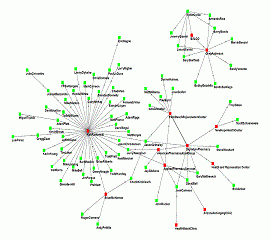Who owns supply chain visibility data? Does the manufacturer of a product retain any rights to track that product after it enters the supply chain? What if the product is a pharmaceutical and it is found to have a life-threatening defect? Should technology or standards availability play any role in answering these questions?
These kinds of questions come up occasionally in discussions of track and trace systems design when people talk about the future of “full supply chain visibility” and how easy recalls will be executed because of it. The implication is that the manufacturer of a drug will be able to perform a targeted recall because they will be able to see exactly where their product is in the supply chain.
But one could easily make the argument that it is no longer “their product” once it enters the supply chain. True, they invented, manufactured and labeled it, and in a recall situation we all have a strong desire for them to get it back quickly and efficiently, but that doesn’t change the simple fact that they don’t own it anymore. And if they don’t own the product anymore then they don’t automatically own the knowledge of where it is either.
I’m not a lawyer but it seems to me that once a product is sold the seller gives up all rights to that product. The buyer can do whatever they want to with it, within the law of course. Recalls that are necessary for reasons that might be life-threatening are special and supply chain members should do everything they can to find and return any item that is involved in a recall. But is it necessary for the manufacturer to have instant access to the location of all of the affected product?
Serialization and track and trace will allow all supply chain participants to know a lot more than they do today about the location of recalled items just using the data that they clearly own. Compared with today, an individual company will know very quickly if they have ever received, shipped or currently have in stock the recalled units. If they currently have them in stock they will be able to place an immediate hold on those items to prevent them from being shipped to a customer until they have been collected and returned. If they have previously shipped the items to a customer they will know exactly which customers were involved and which unit went where. But that’s it. The knowledge of what their customers might have done with those products once they receive them is not owned by the seller. Continue reading Who owns supply chain visibility data? →
 Dear Blockchain Vendors,
Dear Blockchain Vendors,
 Dear Blockchain Vendors,
Dear Blockchain Vendors,

